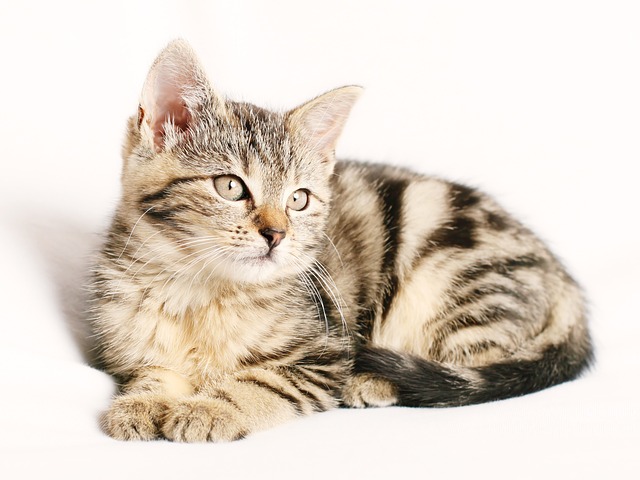
Fenbendazole’s Effectiveness in Treating Roundworms and Hookworms in Cats
Parasite control in cats is one of the pet owner’s top priorities. Intestinal parasites subtly break down immunity, sap nutrients, and are a major contributor to ongoing disease. Veterinarians inevitably resort to one remedy: fenbendazole wormer for cats, an established medication for treating roundworms and hookworms. This article explains how to administer fenbendazole for cats, proper use, dosing advice, and what to look out for in kittens and adult cats.
Understanding fenbendazole wormer for cats
Fenbendazole wormer for cats is a medication in the benzimidazole group that works on the energy metabolism of the worms. It disrupts the worms’ capacity to metabolize nutrients, resulting in their death and expulsion from the feline system. Unlike broad-spectrum dewormers that can cause strain-specific resistance, fenbendazole for cats remains potent against roundworms, hookworms, and even protozoal diseases of certain nature.
Veterinary research shows intestinal worms infect up to 45% of shelter cats in the US if untreated, so regular deworming routines are crucial to animal and public health (Source: Journal of Feline Medicine and Surgery, DOI: 10.1177/1098612X221101495).
In product choice, owners can refer to credible supply websites such as ToltrazurilShop’s cat worming section.
.
Proper Use of fenbendazole in cats
Fenbendazole is commonly prescribed in tablet, suspension, or granules form for cats by veterinarians and is convenient for home pets and extensive populations of cat groups like shelter cats. The success of treatment depends not only on choosing the correct preparation but also on compliance with accurate dosing. Most pet owners mistakenly assume that a single treatment would kill worms, but parasites like roundworms and hookworms have complex life cycles. Eggs and larval stages survive initial therapy such that repeated dosing has to be employed to fully disrupt the cycle and permit no reinfection.
Recommended fenbendazole cat dosage
Recommended fenbendazole cat dosage is typically weight-based, most traditionally given for three to five consecutive days. Some veterinarians extend treatment to seven days for heavy infections or when protozoal parasites are present. A follow-up fecal exam in two to three weeks is crucial to confirm parasites have been eradicated. Omitting doses or stopping treatment early greatly reduces efficacy and typically results in continued infections. In multi-cat households, simultaneous treatment is usually advised to reduce cross-contamination between animals.
fenbendazole for kittens dosage
Treating young cats requires special care. The fenbendazole for kittens dosage must be carefully calculated because kittens have more delicate digestive systems and are more vulnerable to nutrient loss from parasites. Deworming generally begins two to three weeks of age, then repeated at regular intervals until the kitten reaches six months. During this period, reinfections are common because kittens often explore and ingest contaminated materials. Veterinary supervision is strongly advised, and owners should keep litter boxes scrupulously clean to reduce exposure. Several breeders and shelters also keep written dosage records on each kitten to avoid missed or duplicate dosing.
Safety: Is fenbendazole safe for cats?
Yes, fenbendazole is safe for cats, as proven in many veterinary studies and is regarded as one of the safest anthelmintics on the market. If given properly, side effects are minimal, and cats are tolerant of the medication.
Rarely, cats may show temporary soft stools, mild vomiting, or decreased appetite during treatment. These symptoms are usually resolved without intervention. However, overdosing can increase the risk of gastrointestinal upset, so measuring doses accurately is critical. Owners should always consult a veterinarian before treating pregnant cats or cats with chronic illness, since adjustments may be required.
Practical Veterinary Insight
In practice, veterinarians emphasize three key points:
- Consistency is equally as important as accuracy. Treatment failure is more often due to owners stopping too soon than to anything else.
- Keeping records avoids confusion, particularly in multi-cat households. Calendars or reminder programs make it easier for owners to remain on schedule.
- Environmental control is necessary. Even with correct dosing, cats can easily become reinfected if bedding, litter boxes, or feeding areas are not cleaned thoroughly.
Through the integration of the right fenbendazole cat dosage, proper use on kittens, and careful attention to hygiene, owners can maintain their pets parasite-free and healthy.
Expert Insights: Side Effects, Giardia, and Using Panacur
fenbendazole for cats side effects
Though uncommon, side effects in cats from fenbendazole may involve mild drowsiness, nausea, or alteration of stool consistency. These adverse reactions often resolve themselves shortly. If symptoms persist within two days, owners should seek veterinary advice.
Giardia treatment with fenbendazole for cats giardia
In addition to worms, fenbendazole for cats giardia is an important use case. Giardia is a protozoal parasite causing chronic diarrhea and weight loss. Unlike some dewormers that do not affect protozoa, fenbendazole has shown strong success in clearing Giardia infections when used in extended dosing regimens.
Brand and formulation: fenbendazole panacur cats
The familiar brand name Panacur is most often prescribed in the form of fenbendazole panacur cats as liquid suspension or paste. It is often used in shelters and multi-cat environments because it is easy to administer and measure exactly.
Practical Veterinary Advice
Experienced veterinarians often mention the following:
- Owners tend to underdose, especially when they do it by eyes for estimation of weight. Always weigh cats for precise dosing.
- For kittens, regular rechecks are critical, since reinfection from contaminated environments is common.
- Deworming should not be done in isolation. Barn cats, multi-pet homes, or rescue environments must include cleaning litter boxes, wash bedding, and reducing exposure to infected soil.
Why Fenbendazole Is Still Essential
The versatility of cat fenbendazole wormer in acting against both nematodes (hookworms, roundworms) and protozoa like Giardia renders it unusually precious. Shelter medicine standards and veterinary recommendations continue to emphasize its use in long-term parasite management. Complemented by improved sanitation and ongoing surveillance, fenbendazole for cats remains a first-line treatment against some of the most common feline threats to health.
